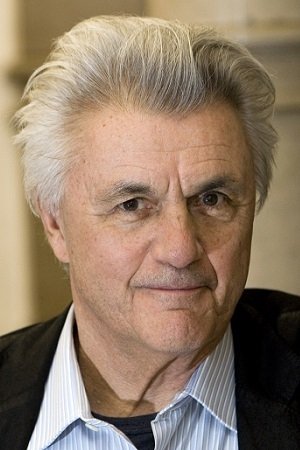
John Irving
John Winslow Irving (born John Wallace Blunt Jr.; March 2, 1942) is an American-Canadian novelist, short story writer, and screenwriter. Irving achieved critical and popular acclaim after the international success of The World According to Garp in 1978. Many of Irving's novels, including The Hotel New Hampshire (1981), The Cider House Rules (1985), A Prayer for Owen Meany (1989), and A Widow for One Year (1998), have been bestsellers. He won the Academy Award for Best Adapted Screenplay in the 72nd Academy Awards (1999) for his script of The Cider House Rules. Five of his novels have been adapted into films (Garp, Hotel, Meany, Cider, Widow). Several of Irving's books (Garp, Meany, Widow) and short stories have been set in and around Phillips Exeter Academy in the town of Exeter, New Hampshire. Irving was born John Wallace Blunt Jr. in Exeter, New Hampshire, the son of Helen Frances (née Winslow) and John Wallace Blunt Sr., a writer and executive recruiter; but the couple separated during pregnancy. Irving grew up in Exeter with a stepfather, Colin Franklin Newell Irving, who was a Phillips Exeter Academy faculty member. His uncle Hammy Bissell was also part of the faculty. John Irving was in the Phillips Exeter wrestling program as a student athlete and as an assistant coach, and wrestling features prominently in his books, stories, and life. While a student at Exeter, Irving was taught by author and Christian theologian Frederick Buechner, whom he quoted in an epigraph in A Prayer for Owen Meany. Irving has dyslexia. Irving's biological father, whom he never met, had been a pilot in the Army Air Forces and, during World War II, was shot down over Burma in July 1943, but survived. (The incident was incorporated into his novel The Cider House Rules.) Irving did not find out about his father's heroism until 1981, when he was almost 40 years old. Irving's career began at the age of 26 with the publication of his first novel, Setting Free the Bears (1968). The novel was reasonably well reviewed but failed to gain a large readership. In the late 1960s, he studied with Kurt Vonnegut at the University of Iowa Writers' Workshop. His second and third novels, The Water-Method Man (1972) and The 158-Pound Marriage (1974), were similarly received. In 1975, Irving accepted a position as assistant professor of English at Mount Holyoke College. Frustrated at the lack of promotion his novels were receiving from his first publisher, Random House, Irving offered his fourth novel, The World According to Garp (1978), to Dutton, which promised him stronger commitment to marketing. The novel became an international bestseller and cultural phenomenon. It was a finalist for the National Book Award for Fiction in 1979 (which ultimately went to Tim O'Brien for Going After Cacciato) and its first paperback edition won the Award the next year. Garp was later made into a film directed by George Roy Hill and starring Robin Williams in the title role and Glenn Close as his mother; it garnered several Academy Award nominations, including nominations for Close and John Lithgow. Irving makes a brief cameo appearance in the film as the referee in one of Garp's high school wrestling matches. ... Source: Article "John Irving" from Wikipedia in English, licensed under CC-BY-SA 3.0.
で知られている: Writing
お誕生日: 1942-03-02
出生地: Exeter, New Hampshire, USA
としても知られている: